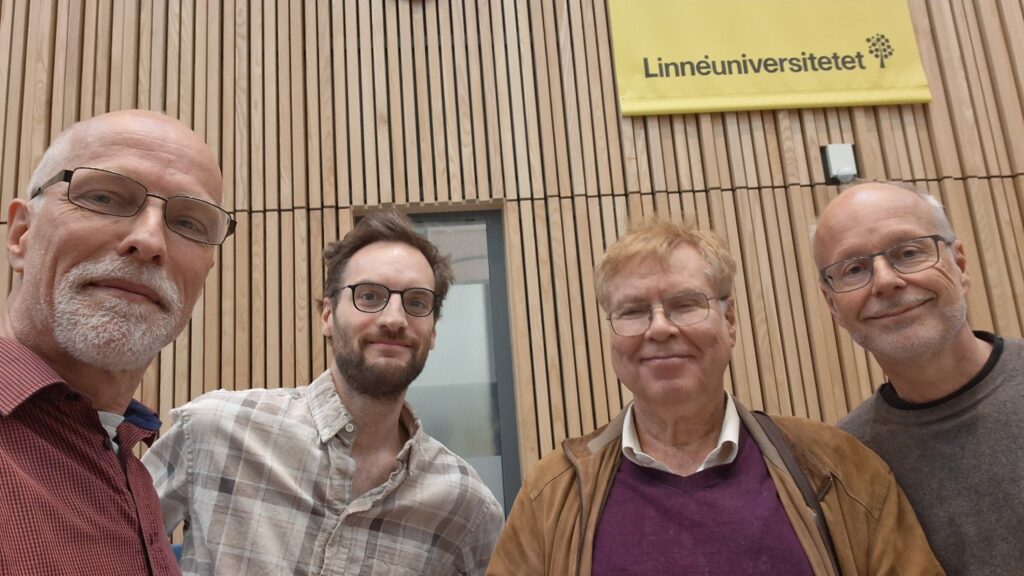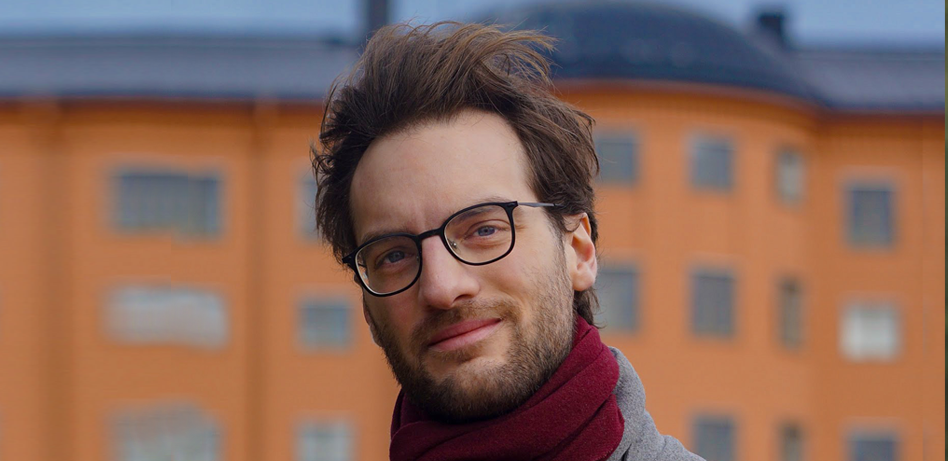Cornelius Holtorf took part in the first meeting of the Heritage and Climate Change Working Group of the ICOMOS International Scientific Committee on Interpretation and Presentation (ICIP) (14 January 2025).
Cornelius Holtorf lectured on “Communicating Cultural Heritage with the Future” for 15 students reading the course “Cultural Heritage and Communication” as part of the Undergraduate Programme in Cultural Heritage in Present and Future Socities at Linnaeus University, Kalmar, Sweden (5 February 2025).
Cornelius Holtorf lectured on “Unesco världsarv: vad kommuniceras för framtida generationers skull?” for 15 students reading the course “Cultural Heritage and Communication” as part of the Undergraduate Programme in Cultural Heritage in Present and Future Socities at Linnaeus University, Kalmar, Sweden (10 February 2025).
Cornelius Holtorf participated in a short survey on the illicit trafficking of cultural property, with a particular focus on its online dimension, shaping discussions at the upcoming UNESCO Conference “Addressing Illicit Trafficking of Cultural Property in the Digital Era” to be held at UNESCO Headquarters in Paris on 26 June 2025 (15 February 2025).
Cornelius Holtorf had an informal meeting with Ulrik Brandén, Deputy Mayor of Mörbylånga, Emma Rydnér, World Heritage Coordinator at Mörbylånga Municipality, and Örjan Molander, Director at Kalmar County Museum, on various ideas for collaboration regarding development of the UNESCO World Heritage property Agricultural Landscape of Southern Öland (20 February 2025).
Cornelius Holtorf took place in the regular meeting of the International Scientific Committee on AeroSpace Heritage of the International Council of Monuments and Sites (ICOMOS) which discussed, among others, the recent listing of the sites on the Moon on the World Monuments Watch List 2025 by the World Monuments Fund (21 February 2025).
Cornelius Holtorf attended the 8th Annual Heritage Lecture of the Cambridge Heritage Research Centre on ”Changing concepts Future of the and the ’Ethics of Repair’”, given by Aleida Assmann, Professor of English Literature and General Literary Studies, Universität Konstanz (28 February 2025).
Cornelius Holtorf presented a keynote lecture on “Time Travel – More than Learning About the Past” for ca 50 listeners in the room and another 20 online, coming together for the conference Re-Action: Time Travels in a Changing Worl – Bridging Ages 20 Years in Kalmar, Sweden (4 March 2025).
Cornelius Holtorf had an informal meeting with Steven Hartman, Executive Director of the BRIDGES Sustainability Science Coalition in UNESCO’s Management of Social Transformations Programme (MOST), on ways of future collaboration (7 March 2025).
Cornelius Holtorf met with Shanti Morell-Hart of the Dept of Anthropology at Brown University in Providence, USA, for an informal conversation about seeds and heritage futures (14 March 2025).
Cornelius Holtorf met in Providence, USA, with Philip Segadika of the National Museum of Botswana in Gaborone, Botswana, for an informal conversation about collabloration on heritage futures (16 March 2025).
Cornelius Holtorf participated actively discussing heritage processes and futures literacy in the first Plenary Meeting of the Expert Group on Archiving and Awareness Preservation (EGAAP-1) of the Nuclear Energy Agency held online and at the OECD in Paris (19-20 March 2025).











[…] The new funding for this and a number of additional smaller projects, means that the Climate Heritage Network is…
[…] Chair on Heritage Futures « Culture, cultural heritage and COP26 […]
[…] mer på Unescoprofessurens blogg http://blogg.lnu.se/unesco/?p=1061 Besök Öland 2050! […]